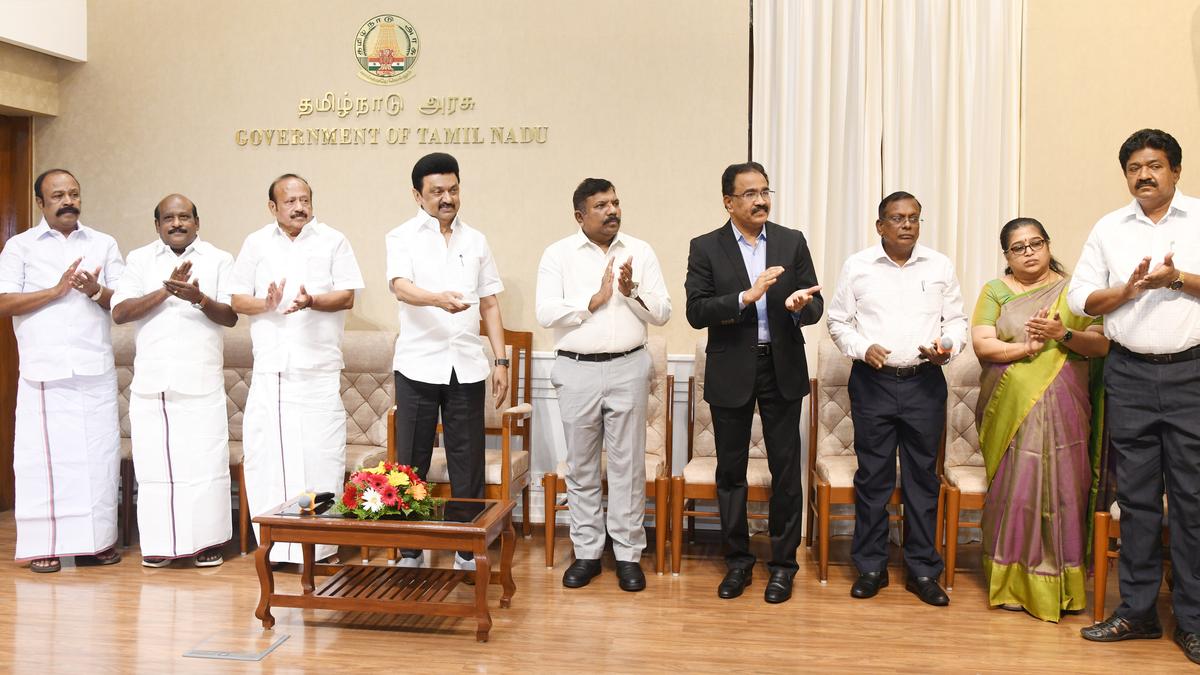Home / tamil-nadu / Tamil Nadu Government Issues Strict Email Policy f
Tamil Nadu Government Issues Strict Email Policy f
By: My India Times
2 minutes read 32Updated At: 2024-11-09
.jfif)
The Tamil Nadu government recently rolled out an updated email policy for its 1.10 lakh employees, setting clear boundaries to ensure ethical, secure, and responsible use of its official email services. Aimed at promoting a secure digital environment within the state’s vast workforce, the new policy addresses a wide range of content and security issues, with particular emphasis on maintaining respectful and lawful communication practices. This update is part of a broader strategy to safeguard against misuse, cyber threats, and breaches that could compromise governmental integrity and the public’s trust.
Key Guidelines on Communication Conduct
The policy strictly prohibits content that could be perceived as offensive or discriminatory based on religion, caste, ethnicity, or other sensitive social identities. Messages that contain derogatory language or anti-national sentiments are explicitly forbidden, underscoring Tamil Nadu’s commitment to fostering a respectful and inclusive working environment for all employees. Additionally, any obscene content is banned, with severe repercussions likely for policy violators.
Emphasis on Security and Confidentiality
To strengthen cybersecurity measures, the new policy prohibits employees from sharing their official email passwords. This restriction is a proactive approach to limit unauthorized access and potential leaks of confidential information. With thousands of state employees relying on the Tamil Nadu government’s email network daily, the risks associated with weak password security and password sharing are high. By restricting access and requiring that each employee safeguard their credentials, the state is taking significant steps to protect government data.
Compliance and Cybersecurity Training
The new email policy includes provisions for compliance checks and cybersecurity training to ensure that employees understand and adhere to these regulations. The government is prioritizing education on digital ethics and cyber responsibility, aiming to equip staff with the knowledge necessary to avoid security threats such as phishing, malware, and other forms of cyberattacks that have become increasingly common in today’s digital landscape.
Building a Secure Digital Ecosystem for Tamil Nadu
This policy marks an important milestone in Tamil Nadu’s efforts to modernize its administrative practices and maintain a strong, ethical, and secure digital presence. It reflects the government’s dedication to safeguarding digital integrity while promoting a respectful communication environment among employees. By upholding strict standards and reinforcing accountability, Tamil Nadu is setting a precedent for government employees’ conduct in India’s digital age.
This move aligns with broader cybersecurity initiatives across the country, highlighting the importance of strong policies to protect sensitive information and maintain public trust.
....The Tamil Nadu government recently rolled out an updated email policy for its 1.10 lakh employees, setting clear boundaries to ensure ethical, secure, and responsible use of its official email services. Aimed at promoting a secure digital environment within the state’s vast workforce, the new policy addresses a wide range of content and security issues, with particular emphasis on maintaining respectful and lawful communication practices. This update is part of a broader strategy to safeguard against misuse, cyber threats, and breaches that could compromise governmental integrity and the public’s trust.
Key Guidelines on Communication Conduct
The policy strictly prohibits content that could be perceived as offensive or discriminatory based on religion, caste, ethnicity, or other sensitive social identities. Messages that contain derogatory language or anti-national sentiments are explicitly forbidden, underscoring Tamil Nadu’s commitment to fostering a respectful and inclusive working environment for all employees. Additionally, any obscene content is banned, with severe repercussions likely for policy violators.
Emphasis on Security and Confidentiality
To strengthen cybersecurity measures, the new policy prohibits employees from sharing their official email passwords. This restriction is a proactive approach to limit unauthorized access and potential leaks of confidential information. With thousands of state employees relying on the Tamil Nadu government’s email network daily, the risks associated with weak password security and password sharing are high. By restricting access and requiring that each employee safeguard their credentials, the state is taking significant steps to protect government data.
Compliance and Cybersecurity Training
The new email policy includes provisions for compliance checks and cybersecurity training to ensure that employees understand and adhere to these regulations. The government is prioritizing education on digital ethics and cyber responsibility, aiming to equip staff with the knowledge necessary to avoid security threats such as phishing, malware, and other forms of cyberattacks that have become increasingly common in today’s digital landscape.
Building a Secure Digital Ecosystem for Tamil Nadu
This policy marks an important milestone in Tamil Nadu’s efforts to modernize its administrative practices and maintain a strong, ethical, and secure digital presence. It reflects the government’s dedication to safeguarding digital integrity while promoting a respectful communication environment among employees. By upholding strict standards and reinforcing accountability, Tamil Nadu is setting a precedent for government employees’ conduct in India’s digital age.
This move aligns with broader cybersecurity initiatives across the country, highlighting the importance of strong policies to protect sensitive information and maintain public trust.
By: My India Times
Updated At: 2024-11-09
Tags: tamil-nadu News | My India Times News | Trending News | Travel News
Join our WhatsApp Channel










































































































.png)
 (1).png)























